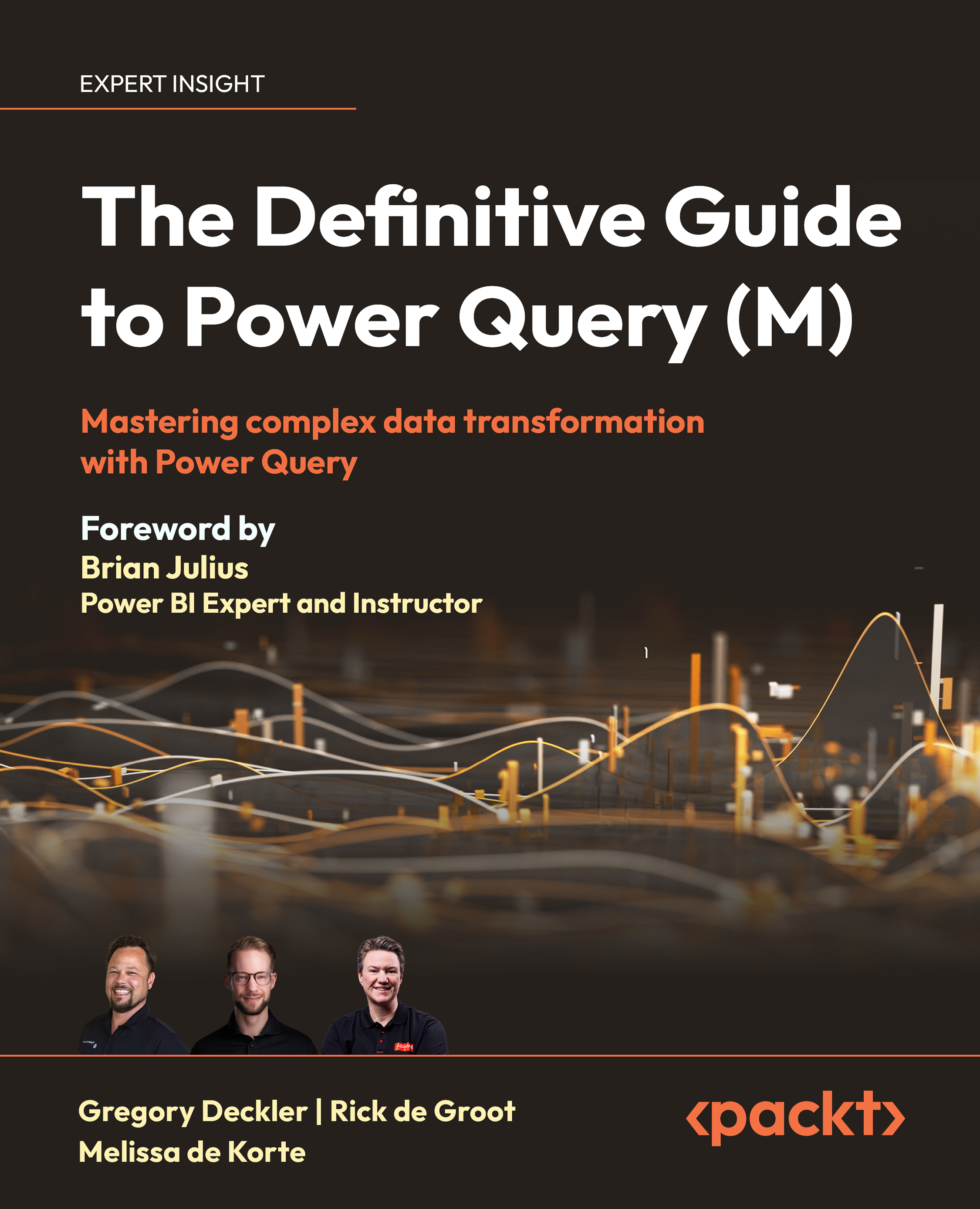Error detection
When working in Power Query, encountering errors is a natural part of the development process, regardless of whether you design queries through the user interface (UI), modify existing code, or write M code from scratch.
When you add “real-world” data into the mix, errors become a part of life that you have to deal with and manage, a process that starts with error detection.
Errors are classified into two types:
- Step-level errors
- Cell-level errors
What separates the two is their containment.
Step-level errors propagate to the top-level expression and cause the evaluation of the entire query to terminate, causing the query to fail. To address step-level errors, it’s essential to determine where the error was raised. The Applied Steps section within the Query Settings pane is where you need to go for a step-by-step evaluation of your query. By selecting each step and evaluating it, starting all the way at the...
































































